#it’s a pioneer whether you think it’s feminist or not
Text
listen this might be something that seems obvious to me because I actually like the art of film and storytelling and art in general, but maybe… don’t make movies based off of old movies you very obviously hate. Why should I watch your remake if all you do is shittalk the source material you based it off of? How is that supposed to convince me your “new and improved” version is going to be better if you keep telling me the bar is literally rock bottom?
#Snow white remake#that movie isn’t even out yet and already everyone involved is making me hate it#“Snow white shouldn’t be black” you’re right she should be eastern asian and not white.#“She’s not a helpless princess who needs a prince to save her” then don’t remake snowwhite#A story that’s famous for the sleeping princess awoken by true love’s kiss trope????#Make your own fucking story then?????#Why do you hate the original animated snowwhite so much#Everyone who’s into films and animated films and disney loves snowwite cus it’s the first feature length animated film EVER#it’s a pioneer whether you think it’s feminist or not#If you keep slamming it for not following the feminist rules of 2023 in the year 1937 you’re alienating your audience before your movie is#Even released#You’re chasing away the audience that you’re supposed to be on the same side on#“Oh you love this movie? So do I! So I tried to do smthn with it that gave it the justice it deserves”#Instead of this whole “actually we’re better than 1937 lol have some uninspired shit that nobody’s gonna enjoy”#I’m so sick of this shit#Every disney remake has to fix past mistakes but it’s not making anything Good in the meantime#And you’re losing the audience you’re trying to reach in the meantime#Doesn’t matter if you like the new barbie movie or not but that one’s actually doing what you’re trying to do RIGHT
21 notes
·
View notes
Text
Blog deliverable 4
Why is the feminist movement important? Before answering this question, I want to talk about why I chose the feminist movement as my topic. The feminist movement is for everyone it doesn’t stop at just females. We are here to fight for the rights for all humans. We stand by equality and humanity. We don’t fight for dominance or for a group of people being more superior. We fight so that we could all treat each other with equality and receive equal rights such as equal pay, medical care, job opportunities, voting, and much more. The feminist movement is important as it helps us take a step closer to equality. The feminist movement helps to achieve equality and allows everyone to live freely and have more complete lives.
I want to talk about some empowering feminists and then I will introduce what I added in my other blog posts. Taylor swift, Eleanor Roosevelt, Betty Friedan,
Angela Davis, Emma Watson, Arianna Grande, Angelina Jolie, and many more. Emma Watson stands out the most to me. Emma fights against gender stereotypes, “Emma fights against gender stereotyping and she believes that we all have feminine and masculine energies. And it is important that both forces are lifted up as well as respected. Emma encourages the world to work together in her powerful speeches, inspirational social media content and initiatives.” She fights for equality.
Why do women get paid less? Why can't they vote?
Why are women only meant to be housewives and
daughters who weren't allowed to leave the house?
You are probably thinking that I am not making
sense… "we aren't in the 50's anymore". Yes, I know,
but that doesn't mean that women aren't facing
issues like this today. There are still many women
around the world fighting for their basic rights. We
are forgetting that women are humans. How can we
help? We need to spread awareness, educate others
around us. These are all questions that I have about
this topic. Questions itself aren't enough. We ask
questions to gain knowledge and understand the
world. The topic we will talk about is the Feminist
movement. What exactly is the Feminist Movement?
According to the internet it is, "social movements and political campaigns for radical and liberal
reforms on women's issues created by the inequality
between men and women." There are many
businesses and organizations putting in the effort to
raise awareness.
When did this movement start? It started in 1848
1917." The fight for women's suffrage in the United
States began with the women's rights movement in
the mid-nineteenth century. This reform effort
encompassed a broad spectrum of goals before its
leaders decided to focus first on securing the vote for
women. Women's suffrage leaders, however,
disagreed over strategy and tactics: whether to seek
the vote at the federal or state level, whether to offer
petitions or pursue litigation, and whether to
persuade lawmakers individually or to take to the
streets. Both the women's rights and suffrage
movements provided political experience for many of
the early women pioneers in Congress, but their
internal divisions foreshadowed the persistent
disagreements among women in Congress that
emerged after the passage of the Nineteenth
Amendment."
There are many companies and brands that support
the feminist movement. The companies are, Abbot,
CVS Health, Johnson & Johnson, Estée Lauder
Companies. The biggest feminist organization is
National Organization for Women (NOW). They have
500,000 members. The American Association of
University Women advanced equity for women and
girls by advocacy. "American Association of
University Women advances equity for women and
girls through advocacy, education, philanthropy and
research. AAUW (formerly known as the American
Association of University Women) is a nationwide
network of more than 100,000 members and
donors, 1,000 branches and 500 college and
university institution partners."
Who are the stakeholders of the Feminist movement? The stakeholders of the Feminist movement are everyone. Anyone can be a stakeholder. Women, men, non binary people. Anyone of any face and color, ethnicity, religion, age, sexuality and gender. Teachers, doctors, singers, writers and many more. Women are fighting for rights such as voting rights, equal pay, reproductive rights and many more. Women are fighting for equality. Men are fighting for equality. People of different sexualities and genders are fighting for equality and rights. Why can’t we just live in a world of peace? Here are some women involved in the feminist movement Elizabeth Cady Stanton, Susan B. Anthony, and Lucretia Mott. These are some organizations that support the feminist movement, National organization for women, Women's Global Empowerment Fund, Global Fund For Women, UN Women, Womankind Worldwide. Women's Global empowerment fund wants to develop programs that help reduce poverty. This could be shown in this quotation, “Founded in 2007, this nonprofit helps women in Uganda. It provides access to microcredit loans; leadership and business training; literacy training; and more. The goal is to develop programs that can help reduce poverty and empower women economically, socially, and politically.” The Global fund for women supports reproductive rights. “Through partnerships with other feminist organizations and activist groups, the Global Fund For Women campaigns on issues such as reproductive rights, political empowerment, and sexual assault. The group is currently active in over 170 countries, and partners with 5,000 other orgs.” The national organization for women wants to protect women’s rights, achieving social justice and much more. This could be shown in this quotation, “Its goals include protecting women’s rights, ending violence against women, achieving racial justice, and so on.” Many women in different countries need our help, some women aren’t allowed education, voting rights and much more. We are all human and we all deserve rights. We will also go over the interview I hosted last week. The guest was Leah da Silva.
What does feminism mean to you? Feminism to me is the equality in genders for social and economic opportunities, feminism is the fight for equal rights, freedom of speech, equal pay, voting rights and much more, feminism is the fight for human rights, we are all human and we need to be treated equally.” -Leah da Silva. How do you think we could help spread awareness of the issues going around in the world? “I think ways to raise and spread awareness for the feminist movement can be is to encourage anti sexism and oppression campaigns in workplaces, we should also be educating the younger generations and reading more on this topic.”-Leah da Silva. What can we do to achieve equality? “To achieve equality we should build more Organizations and communities that provide workshops on education people on feminism. We should also host peace marches. In schools education should be more sensitive, we should talk about achievements of women in history not just the achievements of men. We should host events that empower women.” Leah da Silva. Who are some women you look up to? “ My mom is an inspiration to me. My mom is a single mom who had to raise kids in a different country that wasn’t her native country while juggling multiple jobs as a young mother. She is independent and a hard worker.” Leah da Silva
I believe that we are all responsible for spreading awareness and taking small steps to make our world a better place. Let’s educate the younger generation and help make this world a place where we could all be peaceful.
0 notes
Note
Why do you (and other trans rights activists) feel the need to bring WOC into your struggle to be seen as a woman? We aren’t fighting to be seen as women. We are women. The misogynoir black women face has nothing to do with transphobia.
A good question! Two things I wanna note before I answer it:
Firstly, ‘Trans Rights Activists’ or ‘TRAs’ is often a transphobic dogwhistle, and I’m not an activist, but whether you meant this sincerely or not it’s still a good question!
Secondly, I’m struggling for concrete things like equal rights to healthcare, marriage, and adoption. “Being seen as a woman” is quite a nebulous goal - like you, I already am one whether people see me correctly or not - and I think it’s useful to remember the actual material things we need too!
But, to your question - I’m not bringing WOC into anything; WOC feminism has been trans inclusive for decades precisely because WOC have had to fight to be seen as women! To take one famous example, Sojourner’s Truth’s famous “Ain’t I a woman?” speech only made sense in a world where black women weren’t generally seen as included within contemporary feminist ideals of womanhood. To take another example (one about toilets cause I’m in Britain and we’re obsessed with them lol) under Jim Crow it was common to have three public loos - ‘White Men,’ ‘White Ladies,’ and ‘Black People (All)’; when women’s loos were first built in Camden in London they were for white upper class women only because no other women were acknowledged as having the same needs. Women who use wheelchairs still don’t have adequate public toilet facilities in my country! To take yet a third example, J. Marion Sims’ pioneering work in gynaecology was done by performing medical experimentation on enslaved black women, something he was only able to do because people didn’t see them as women but as property. So misogynoir in fact has a lot to do with transmisogyny, not just for black trans women but black cis women too, and black cis feminists have been pointing this out for over fifty years now! Some of contemporary black feminism’s founding texts are trans inclusive, like the Combahee River Collective Statement. I’ve provided a bibliography below.

4K notes
·
View notes
Note
Questions 6 and 18 please
6. gold stars
18. does biphobia exist
I almost don't even want to answer these because I know all of radblr's insecure self-loathing women who have yet to come to a feminist consciousness are ready to jump down the throat of anyone who dares to express divergent opinions on these topics. I almost don't want to answer.
But I will!
6. gold stars
I'll say this. I don't care if a lesbian is a "gold star" or not. I really could not give less of a fuck. It doesn't matter at all and I think the discourse surrounding it is foolish and juvenile. When I read people's posts arguing about "gold star vs. NGS" my eyes roll to the back of my skull. It is so not a problem that lesbians need to be worrying about. Who does this argument benefit? It just creates division between women and sows paranoia and distrust. If you're a "gold star"? Good for you, truly. If you're not? That's fine. I'm not. It doesn't matter.
"Women pretending to be lesbians" is not really the dire, pressing issue that some of you seem to believe it is. Men pretending to be women is the problem! Why create more reasons to fight amongst ourselves? If a woman is calling herself a lesbian yet she is actively pursuing and sleeping with men, that woman is very confused and you can just ignore her, actually! She is not the problem. The problem is that women are fed lies and don't actually know what a lesbian is and women in general have very poor understanding and conceptualization of female sexuality. That's the problem. Also that we live in a society which hates women who prioritize women so we all turn against each other at the drop of a hat and that's exactly what men want us to do. "Gold star discourse" is myopic and infantile and it sounds exactly like TRAs arguing about truscum and transmed and tucute and whatever other little semantic arguments they go on about. It isn't a real problem.
In an ideal world, every lesbian would be a "gold star". But unfortunately the world we live in is very much not ideal. Have some empathy and understanding for other women and think about who is benefiting from your infighting.
18. does biphobia exist
I mean, depends on what you mean by "biphobia". I personally have never understood what this term is supposed to convey. I don't find any of the "-phobia" terms helpful and I avoid using them whenever possible. It's like saying 'pedophile' instead of calling them what they are, they are child rapists. Saying "lesbophobia" when you mean hatred of lesbians. I think all the -phile and -phobia terms can be confusing and unclear. Smacks of postmodernism to me. Does "biphobia" mean hatred of bisexual people? If so, I don't think that exists. I don't think anyone, like, despises bisexuals. I think many people find the behavior of self-proclaimed bisexuals to be confusing and there is mistrust there, but that does not qualify as hatred or "phobia" to me.
Other than that, I'm not sure what is the term "biphobia" is intended to mean, and I have yet to come across a satisfying explanation. I cannot say whether it "exists" or not. There is certainly hatred of sexual behavior between members of the same sex, and bisexuals can become the targets of this hatred if engaging in relationships with persons of the same sex. Anything else could simply be called prejudice, in my book.
Overall I think that the currently widely held beliefs (among women and among the ‘LGBT community’) about and regarding human sexuality are harmful and reductive, so I find these topics to be difficult to talk about without doing a lot of prefacing and disclaiming first and that is frustrating to me. The last time I tried talking about this on here, I had a bunch of children screaming and crying and melting down in my notes and my inbox about how offended they were by my critical analysis of the field of sexology which was pioneered by the outrageous woman-hater and generally despicable man, Havelock Ellis, and which provides the basis for our modern understanding of human sexual behavior and is less than 150 years old. So I don't really feel like talking about it publicly anymore, not yet. I don't feel like being attacked by reactionaries. But my DMs are always open and I'm happy to have discussions about what I think, and to hear other women's opinions and perspectives.
7 notes
·
View notes
Text
The Devil at Large
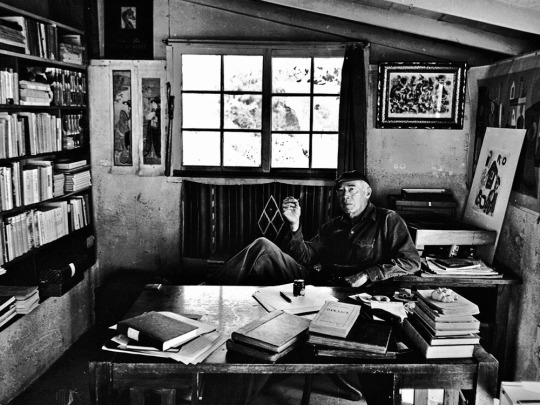
I know myself. It’s all I can think to say as you default to dogma and fail to truly understand that the minuscule overlap between my birth and his death makes Henry Miller no more contemporaneous to me than any other relic of the literary past. But how, but how... can I stomach him? Largely in the usual way, and haven’t you somewhat gleaned by now the essential in the reading?
After all, it isn’t a coincidence that Erica Jong credits Miller—and his brazen oeuvre—for having freed her in style and substance at the start of the 1970s. Fear of Flying, controversial as it might be, still stands as a feminist-erotic landmark that Miller himself declared a “female Tropic of Cancer,” a book that will lead women to “find their own voice and give us great sagas of sex, life, joy, and adventure.”
And no, it’s not about whether you love or loathe Jong’s semi-mythologised notion of the “zipless fuck” or whether you misguidedly wish to divorce intellectual manifestations of womanhood from their carnal centre. It’s about expression—the rolling articulation from James Joyce to D.H. Lawrence to counter-culture pioneers like Miller and Jong. From their mouths to mine to yours. This is how it goes. And you take from it what you want; namely a healthy perspective, if you know what’s good for you.
But if you think that’s all Miller is or that he has nothing to offer past the guttural—and arguably pornographic—transfer of fetish to universal, you haven’t been paying attention. Hence Jong postulates:
“Perhaps Miller was censored, not because he advocated sex, but because he fought hypocrisy. He is one of the relatively few modern authors whom we can speak of as a liberator. His autobiographical novels recount the vicissitudes of a soul in search of itself. The energy of the struggle, the honesty with which the struggle is depicted—lead one to identify deeply with Miller even when one’s own experience has not been precisely parallel.”
I don’t have to be a man to understand one, to love one. Nor does he need, in any capacity, to shed his identity in favour of mine. The same applies to texts. Would I elevate Miller above other writers? Canonise him and his mock-memoir as a genre sublime? I have to wonder, are those serious questions? I mean, are they?
What was I saying about the you and the point?
Besides, feminist interpretations should constitute an opening up, not a closing down. Of course, this doesn’t preclude the idea of a discerning or robust approach to the subject nor suggest that anything is exempt from criticism. It simply balances the observation so we may be receptive in the objective sense and possess a broader eye.
It is not, on any level, an exercise in obedience. And really, you want the shackles gone? The first place you go to is your mind.
I’m not here to suggest that Miller embodies the apex of craft. Quite the opposite in fact; he is a talker not a writer. But nonetheless he writes of sex with humour, with ease—and unlike his spiritual predecessors, completely independent of religious traditionalism or ideology. Suffice to say, this naturalistic component isn’t always pretty per se, but in rejecting euphemism, or the romanticism therein, and by grasping sexual linguistics and iconography as is, that is exactly what Miller’s coital poetics become. As Anaïs Nin writes in her preface to Tropic of Cancer:
“Here is a book which, if such a thing were possible, might restore our appetite for the fundamental realities. [...] In a world grown paralysed with introspection and constipated by delicate mental meals this brutal exposure of the substantial body comes as a vitalising current of blood. The violence and obscenity are left unadulterated, as manifestation of the mystery and pain which ever accompanies the act of creation.”
Is she, perhaps, influenced by their much-documented foray into explicit extremes? That of subsumption at their own physical behest? Annihilation by bed as by tongues? Doubtlessly. Although she is sincere as she praises Miller for “courting the stern, psychological reality which man seeks to avoid through recourse to the oblique symbolism of art.” A truth of life, then, dominates Miller’s rambling discourse. Nin goes on:
“It is no false primitivism which gives rise to this savage lyricism. It is not a retrogressive tendency, but a swing forward into unbeaten areas. To regard a naked book such as this with the same critical eye that is turned upon even such diverse types as Lawrence, Breton, Joyce and Céline is a mistake. Rather let us try to look at it with the eyes of a Patagonian for whom all that is sacred and taboo in our world is meaningless. For the adventure which has brought the author to the spiritual ends of the earth is the history of every artist who, in order to express himself, must traverse the intangible gridirons of his imaginary world. The air pockets, the alkali wastes, the crumbling monuments, the putrescent cadavers, the crazy jig and maggot dance, all this forms a grand fresco of our epoch, done with shattering phrases and loud, strident, hammer strokes.”
The power to shock and, by extension, tear at the anaesthetised membrane of our somnambulist reality was as imperative in the 1930s as it is today. “This book brings with it a wind that blows down the dead and hollow trees whose roots are withered and lost in the barren soil of our times,” Nin writes. “This book goes to the roots and digs under, digs for subterranean springs.”
As summations go, it is in complete alignment with the “resurrection of emotions” Miller wishes to erect, this “world on the basis of the omphalos, not on an abstract idea nailed to a cross.” Citing Strindberg to Gaugin, he writes:
“J’ai vu des arbres que ne retrouverait aucun botaniste, des animaux que Cuvier n’a jamais soupçonnés et des hommes que vous seul avez pu créer.”
I saw trees that no botanist would find, animals that Cuvier never suspected and men that only you could create. Here, meaning is derived from fecundity, from imagination, from mythos. Caught in time, he laments and hungers for release.
Miller, as beholden to as he is detached from the lewd absurdity of “a couple of trollops... doing somersaults in the bare floor,” recognises the socio-psychological malaise of the “feeble bodies” around him:
“Behind the grey walls there are human sparks, and yet never a conflagration. Are these men and women, I ask myself, or are these shadows, shadows of puppets dangled by invisible strings? They move in freedom apparently, but they have nowhere to go. In one realm only are they free and there they may roam at will—but they have not yet learned how to take wing. So far there have been no dreams that have taken wing. Not one man has been born light enough, gay enough, to leave the earth!”
Philosophically sound as the sentiment is, dissolution is the name of the game as he slides himself back to “a room full of lockjaw.” But oh, that thought could be transcendent. Not “this fucked-out cunt of a whore”—and you can flinch but never turn from it—not the agony so much, or even the lexis. It’s what he knows, the clarity of murky revelations:
“Every bat flying out of the belfry a lost cause, every whoopla a groan over the radio from the private trenches of the damned. Out of that dark, unstitched wound, that sink of abominations, that cradle of black-thronged cities where the music of ideas is drowned in cold fat, out of strangled Utopias is born a clown, a being divided between beauty and ugliness, between light and chaos, a clown who when he looks down and sidelong is Satan himself and when he looks upward sees a buttered angel, a snail with wings.”
This. That. “The story of art whose roots lie in massacre,” Miller writes. And there’s a piece of me that appreciates your hesitation. It’s not for the faint of heart. I know. Then again, neither is this life. We move in, we move out. In, out, in, out—a hundred years at a time. Are they only words? Nothing’s only anything. As for pages? The ones who burn them are the scared, I think you’ll find.
“[A] a man who is intent on creation always dives beneath, to the open wound, to the festering obscene horror,” Miller asserts. Do you want candour or do you want comfort? Are you distracted by trivialities? Because the “man” in this case is the woman in ours. Burrow until you find what matters. Then choke on it. You think I adore Miller? I don’t. Still, he knows:
“[The artist] hitches his dynamo to the tenderest parts; if only blood and pus gush forth, it is something. The dry, fucked-out crater is obscene. More obscene than anything is inertia. More blasphemous than the bloodiest oath is paralysis. If there is only a gaping wound left then it must gush forth though it produce nothing but toads and bats and homunculi.
Everything is packed into a second which is either consummated or not consummated. The earth is not an arid plateau of health and comfort, but a great sprawling female with velvet torso that swells and heaves with ocean billows; she squirms beneath a diadem of sweat and anguish. Naked and sexed she rolls among the clouds in the violet light of the stars. All of her, from her generous breasts to her gleaming thighs, blazes with furious ardour. She moves amongst the seasons and the years with a grand whoopla that seizes the torso with paroxysmal fury, that shakes the cobwebs out of the sky; she subsides on her pivotal orbits with volcanic tremors. She is like a doe at times, a doe that has fallen into a snare and lies waiting with beating heart for the cymbals to crash and the dogs to bark. Love and hate, despair, pity, rage, disgust—what are these amidst the fornications of the planets? What is war, disease, cruelty, terror, when night presents the ecstasy of myriad blazing suns? What is this chaff we chew in our sleep if it is not the remembrance of fang-whorl and star cluster?”
I would rather, pained, be of this fervent mind than drape myself in passions quelled and call me falsely sated. We are who we are who we are. We are. But I am not of labels. So myself I feel when Miller writes, “Out of nothingness arises the sign of infinity; beneath the ever-rising spirals slowly sinks the gaping hole. The land and the water make numbers joined, a poem written with flesh and stronger than steel or granite. Through endless night the earth whirls toward a creation unknown...”
To see this as who I am, through the rarity of our commonality—I will love. There’s no orthodoxy to it, no prescriptivism. Just us. And here? I find what Jong did in Miller—one who is “faintly disreputable” but nonetheless unlocks a mounting “something” in me.
#writing#quote#love#art#literature#meaning#existential musings#all eternal things#love in a time of...#a murmur of fire#stripped and bare#intelligence quotients#depth perception#literary sensibilities#understanding beyond thought#perspective matters#underneath it all#essential thinking#beyond good and evil#still feminist as fuck#this is who i am#elisa english#elisaenglish
4 notes
·
View notes
Note
American girl doll quiz 1: d 2: b 3: b (but I would for you V) 4: a 5: a 6: b 7: oldest sibling 8: pasta, fried mackerel, broccoli 9: yes... 10: quietly and resentfully 11: 2 lmao 12: I love hiking, winter swimming, mushroom-identification, bird-watching, all that good shit 13: deranged, anxious, earnest 14: practical, denim, makeup? never heard of her. 15: I once attempted to hitchhike 187km to see raja at the one gay bar in moncton -dartmouth420
Aaaaaugh hello my angel!!! So happy you're indulging my favorite new hobby, thank you so much! 😘😘
Alright so, I think that your primary doll should be someone who speaks to your enjoyment of nature/the outdoors, the fact that you are earnest/straightforward, responsible but somewhat conflicted about it, and that you are practical but also a bit whimsical.
Presenting...one of the OG dolls from the 1980s...Ms. Kirsten Larson!
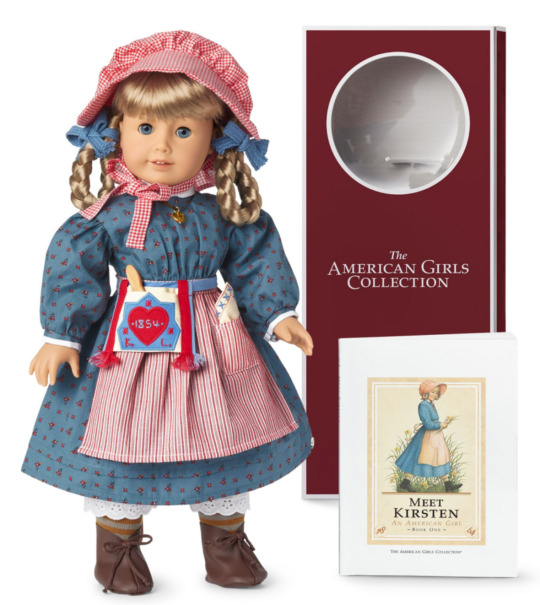
Kirsten is a Swedish immigrant living in Minnesota in 1854. She's not always the most confident as she arrives in the country without knowing a word of English (and one of her friends dies of cholera on the journey so that's like...a huge bummer). But, she's kind, brave, hardworking and an all-around sweetheart. She loves animals and somewhat begrudgingly accepts a lot of extra responsibility after her mom has a new baby. She's also a daydreamer and makes friends easily because she's so damn lovable. (Sound familiar? 💖)
She's very practical and unfussy, and yet she does rock a cute Santa Lucia outfit and few Pioneer Realness Lewks:

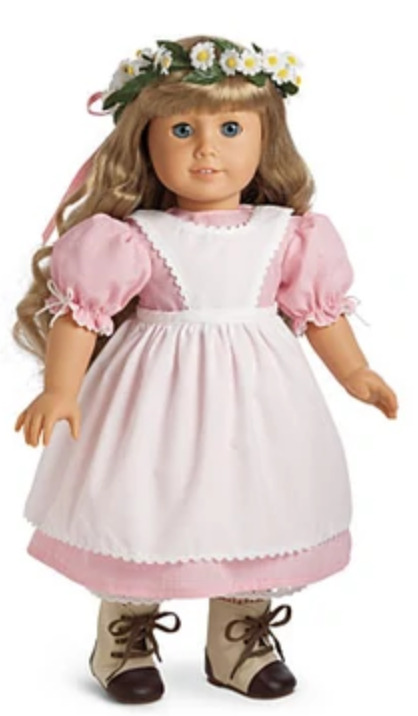
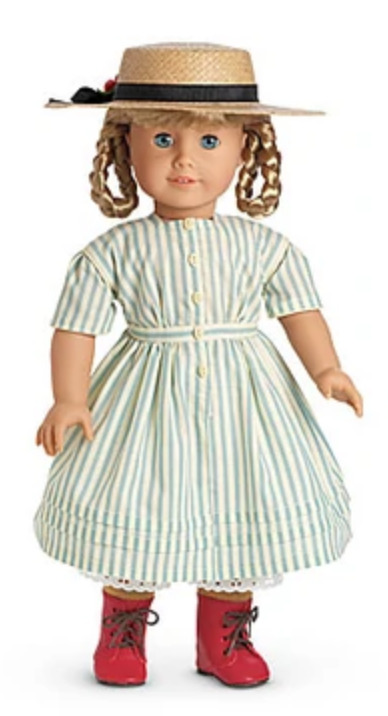
Your secondary doll is tougher, because I'm a little conflicted as to whether you'd relate more to the 1970s San Franscisco girl, Julie: an environmentally-minded second wave feminist who's fighting to join the basketball team, or Kit, the spunky and resourceful Depression-Era aspiring reporter living in the midwest.
They're both on the less traditionally girly side of the spectrum (although...I mean we are still selling dolls here people, lol), and can seriously rock a denim ensemble:
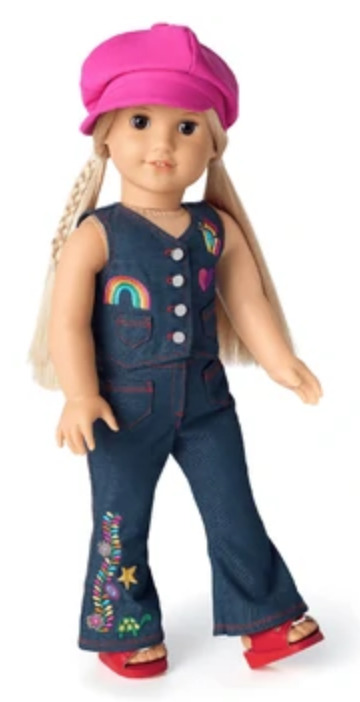
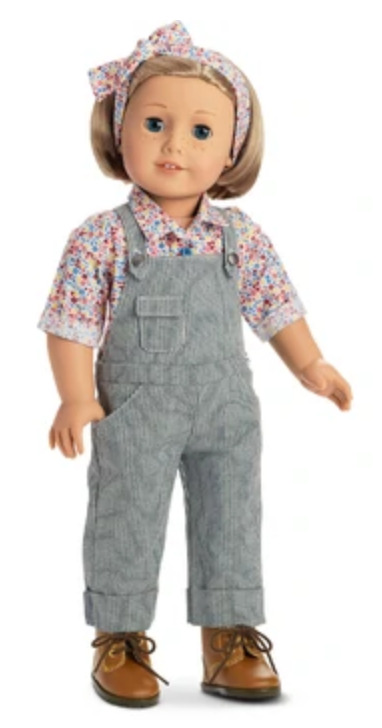
Julie, understandably, has far cooler accessories, like a banana-seat bike, a lava lamp, a pinball machine, a fondue set, roller skates, a pet rock, and amazing furniture including this absolutely kick-ass bed and funky egg chair:


On the other hand, Kit has a chicken. So it's a tough call.

(It was not intentional for you to end up with all blondes, btw. That's just the way things work sometimes. If you'd like a brunette slash non-white doll, I think you would also enjoy Josefina Montoya, a real sensitive sweetie living in New Mexico in 1824.)

2 notes
·
View notes
Text

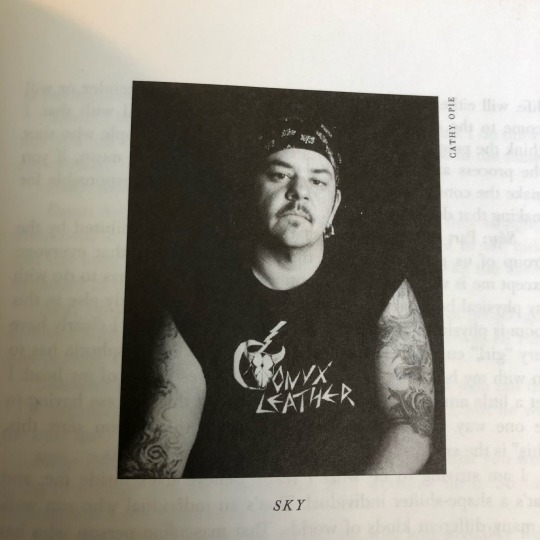


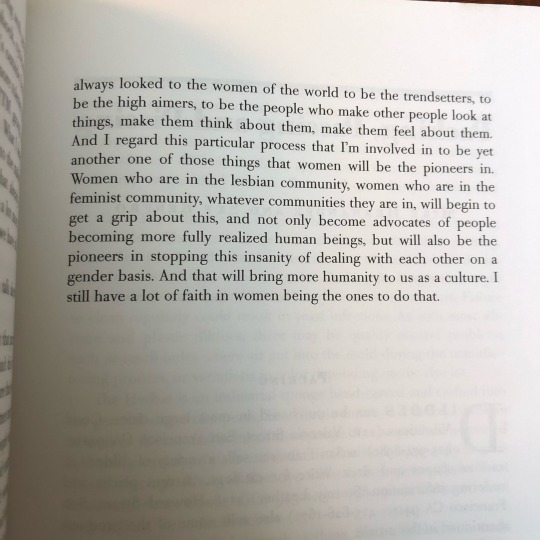
Deva, “FTM/Female-to-Male: An Interview with Mike, Eric, Billy, Sky, and Shadow” from Dagger: On Butch Women, edited by Lily Burana, Roxxie, and Linnea Due, Cleis Press, 1994
[”There is as much mystery surrounding female-to-male transsexuality as there is surrounding butchness. Since no source of information on FTMs is more credible or insightful than FTMs themselves, we shunned speculative pieces in favor of the following round-table discussion.
(...)
Deva: Is there anything else you guys want to talk about that you feel is important?
Sky: I wanted to talk just a bit more about that particular thought, about people coming to San Francisco and this being trendy. I think that it’s more of an evolution of a culture that’s really starting to examine what our lives are about. We’ve gotten more and more defined about people who are incest survivors, people who are abuse survivors, and taking parts of our lives apart and examining them and figuring how they work and how they don’t work, and how they make us be who we are. I don’t see it as a trend that will be dropped; I see it as a trend that more people will follow and begin to examine how they feel about their sexual identity and their gender in the world.
Shadow: The cynical part of me doesn’t believe that. I certainly hope that that’s true and I would really like to see that happen because this human race could use it. But there’s also the part of me that’s watching leather and S/M get very yuppified— all of a sudden it’s the thing to look very bad and beautiful and nasty...
Deva: Like Madonna.
Shadow: Yeah. I mean, Harley Davidson has gone yuppie, for Christ sake.... The cynical part of me says it’s a trend.
Mike: The one thing I wanted to stress was that whether you’re into genderfuck, genderblur, genderplay, whatever you want to call it, does not mean that you are FTM or will become FTM. So whoever’s reading this, if you’re interested in exploring it, if it feels good, do it. Ask questions, check it out, and don’t be afraid that just by trying something you’re totally going to catch it.
Sky: I would like to say one thing in closing. For me, I have always looked to the women of the world to be the trendsetters, to be the high aimers, to be the people who make other people look at things, make them think about them, make them feel about them. And I regard this particular process that I’m involved in to be yet another one of those things that women will be the pioneers in. Women who are in the lesbian community, women who are in the feminist community, whatever communities they are in, will begin to get a grip about this, and not only become advocates of people becoming more fully realized human beings, but will also be the pioneers in stopping this insanity of dealing with each other on a gender basis. And that will bring more humanity to us as a culture. I still have a lot of faith in women being the ones to do that.”]
#trans literature#lesbian literature#gender stuff#sure wish we could see mike's full sleeve that must be some work#wasteland radio#terra preta
141 notes
·
View notes
Text
Anonymous asked: Your blog isn’t what I expected for someone who champions conservative values because it is very rich in celebrating culture and strikes a very humane pose. I learn a great deal from your clever and playful posts. Now and again your feminism reveals itself and so I wonder what kind of feminist are you, if at all? It’s a little confusing for a self professing conservative blog.
I must thank you for your kind words about my blog and your praise is undeserved but I do appreciate that you enjoy aspects of high culture that you may not have come across.
My conservatism is not political or ideological per se and - I get this a lot - not taken from the rather inflammatory American discourse of left and right that is currently playing itself out in America. For example my distaste for the likes of Trump is well known and I have not been shy in poking fun at him here on my blog. Partly because he’s not a real conservative in my eyes but a .... < insert as many expletives as you want here > ....but mainly he has no character. My point is my conservatism isn’t defined by what goes on across from the pond.
Rather my conservatism is rooted in deeply British intellectual traditions and draw in inspiration from Edmund Burke, Michael Oakeshott, Roger Scruton, and other British thinkers as well as cultural writers like Coleridge, Wordsworth, and Waugh. So it’s a state of mind or a state of being rather than a rigid ideological set of beliefs.
Of course there is a lot of overlap of shared values and perspectives between the conservatism found elsewhere and what it is has historically been in English history. But my conservative beliefs are not tied to a political party for example. I wash my hands of politicians of all stripes if you must know. I won’t get into that right now but I hope to come back and and address it in a later post.
As for my feminism that is indeed an interesting question. It’s a very loaded and combustible word especially in these volatile times where vitriol and victimhood demonisation rather than civility and honest discussion so often flavour our social discourse on present day culture and politics.
I would be fine to describe myself as an old school feminist if I am allowing myself to be labelled that is. And in that case there is no incompatibility between being that sort of small ‘f’ feminist and someone who holds a conservative temperament. They are mutually compatible.
To understand what I mean let me give you a potted history of feminism. It’s very broad brush and I know I am over simplifying the rich history of each wave of feminism so I’m making this caveat here.
Broadly speaking the feminist movement is usually broken up into three “waves.” The first wave in the late 19th and early 20th centuries pushed for political equality. The second wave, in the 1960s and 1970s, pushed for legal and professional equality. And the third wave, in the past couple decades but especially now, has pushed for social equality as well as social and racial justice. It is the first wave and bits of the second wave that I broadly identify my feminism with.
Why is that?
Again broadly speaking, in the first wave and overlapping with the second wave legal and political equality are clearly defined and measurable, but in the third wave (the current wave) social equality and social justice is murky and complicated.
Indeed the current feminist movement - which now also includes race and trans issues in a big way - is not a protest against unjust laws or sexist institutions as much as it is the protest against people’s unconscious beliefs as well as centuries-worth of cultural norms and heritage that have been biased in some ways against women but also crucially have served women reasonably well in unwritten ways.
Of course women still get screwed over in myriad ways. It’s just that whereas before it was an open and accepted part of society, today nearly all - as they see it - is non-obvious and even unconscious. So we have moved from policing legalised equality opporttunities to policing thought.
I understand the resentment - some of it sincere - against the perceived unjustness of women’s lot in life. But this third wave of feminism is fuelled in raw emotion, dollops of self-victimhood, and selfish avoidance of personal responsibility. Indeed it bloats itself by latching onto every social and racial outrage of the moment.
It becomes incredibly difficult to actually define ‘equality’ not in terms of the goals of the first wave of feminists or even the second because we can objectively measure legal, civil and political goals e.g. It’s easy to measure whether boys and girls are receiving the same funding in schools. It’s easy to see whether a man and woman are being paid appropriately for the same work.
But how does one measure equality in terms of social justice? If people have a visceral dislike of Ms X over Mr Y is it because she’s a woman or only because she’s a shitty human being in person?
The problem is that feminism is more than a philosophy or a group of beliefs. It is, now, also a political movement, a social identity, as well as a set of institutions. In other words, it’s become tribal identity politics thanks to the abstract ideological currents of cultural Marxism.
Once a philosophy goes tribal, its beliefs no longer exist to serve some moral principle, but rather they exist to serve the promotion of the group - with all their unconscious biases and preferences for people who pass our ‘purity test’ of what true believers should be i.e. like us, built in.
So we end up in this crazy situation where tribal feminism laid out a specific set of paranoid beliefs - that everywhere you look there is constant oppression from the patriarchy, that masculinity is inherently violent, and that the only differences between men and women are figments of our cultural imagination, not based on biology or science.
Anyone who contradicted or questioned these beliefs soon found themselves kicked out of the tribe. They became one of the oppressors. And the people who pushed these beliefs to their furthest conclusions — that penises were a cultural construction of oppression, that school mascots encourage rape and sexual violence, and that marriage is state sanctioned rape or as is now the current fad that biological sex is not a scientific fact or not recognising preferred pronouns is a form of hate speech etc— were rewarded with greater status within the tribe.
Often those shouting the loudest have been white middle class educated liberals who try to outcompete each other within the tribe with such virtue signalling. Since the expansion of higher education in the 1980s in Britain (and the US too I think), a lot of these misguided young people have been doing useless university degrees - gender studies, performing arts, communication studies, ethnic studies etc - that have no application in the real world of work. I listen to CEOs and other hiring executives and they are shocked at how uneducated graduate students are and how such graduates lack even the basic skills in logic and critical problem solving. And they seem so fragile to criticism.
In a rapidly changing global economy, a society if it wants to progress and prosper is in need of valuing skills, languages, technical knowledge, and general competence (i.e critical thinking) but all too often what our current society has instead are middle class young men and women with a useless piece of toilet paper that passes for a university degree, a mountain of monetary debt, and no job prospects. No wonder they feel it’s someone else’s fault they can’t get on to that first rung of the ladder of life and decide instead that pulling down statues is more cathartic and vague calls to end ‘institutional systemic racism’. Oh I digress....sorry.
My real issue with the current wave of feminists is that they have an attitude problem.
Previous generations of feminists sacrificed a great deal in getting women the right to vote, to go to university, to have an equal education, for protection from domestic violence, and workplace discrimination, and equal pay, and fair divorce laws. All these are good things and none actually undermine the natural order of things such as marriage or family. It is these women I truly admire and I am inspired by in my own life because of their grit and relentless drive and not curl up into a ball of self pity and victimhood.
More importantly they did so NOT at the expense of men. Indeed they sought not to replace men but to seek parity in legal ways to ensure equality of opportunity (not outcomes). This is often forgotten but is important to stress.
Certainly for the first wave of feminists they did not hate men but rather celebrated them. Pioneers such as Amelia Earhart - to give a personal example close to my heart as a former military aviator myself - admired men a great deal. Othern women like another heroine of mine, Gettrude Bell, the first woman to get a First Class honours History degree at Oxford and renowned archaeologist and Middle East trraveller and power breaker never lost her admiration for her male peers.
I love men too as a general observation. I admire many that I am blessed to know in my life. I admire them not because they are necessarily men but primarily because of their character. It’s their character makes me want to emulate them by making me determined and disciplined to achieve my own life goals through grit and effort.
Character for me is how I judge anyone. It matters not to me your colour, creed or sexual orientation. But what matters is your actions.
I find it surreal that we have gone from a world where Christian driven Martin Luther King envisaged a world where a person would be judged from the content of their character and not the colour of their skin (or gender) to one where it’s been reversed 360 degrees. Now we are expected to judge people by the colour of their skin, their gender and sexual orientation. So what one appears on the outside is more important than what’s on the inside. It’s errant nonsense and a betrayal of the sacrifices of those who fought for equality for all by past generations.
Moreover as a Christian, such notions are unbiblical. The bible doesn’t recognise race - despite what slave owners down the ages have believed - nor gender - despite what the narrow minded men in pulpits have spewed out down the centuries - but it does recognise the fact of original sin in the human condition. We are all fallen, we are all broken, and we are all in need of grace.
Even if one isn’t religious inclined there is something else to consider.
For past generations the stakes were so big. By contrast this present generation’s stakes seem petty and small. Indeed the current generation’s struggle comes down to fighting for safe spaces, trigger warnings and micro aggressions. In other words, it’s just about the protection of feelings. No wonder our generation is seen as the snowflake generation.
A lot of this nonsense can be put down to the intellectually fraudulent teachings of critical theory and post colonial studies in the liberal arts departments on university campuses and how such ideas have and continue to seep into the mainstream conversation with such concepts as ‘white privilege’, ‘white fragility’, ‘whites lives don’t matter’, ‘abolish whiteness’ ‘rape culture’ etc which feels satisfying as intellectual masturbation but has no resonance in the real world where people get on with the daily struggle of making something of their lives.
But yet its critical mass is unsustainable because the ideas inherent within it are intellectually unstable and will eventually implode in on itself - witness the current war between feminists (dismissed uncharitably as terfs) who define women by their biological sex and want to protect their sexual identity from those who for example are championing trans rights as sexuality defined primarily as a social construct. So you have third wave feminists taking completely different stances on the same issues. For instance there’s the sex positive feminists and there’s also anti-porn, sex negative feminists. How can the same thing either be empowering or demeaning? There are so many third wave feminists taking completely different stances on the same exact topics that it’s difficult to even place what they want anymore.The rallying cries of third wave feminism have largely been issues that show only one side of the story and leave out a lot of pertinent details.
But the totality of the damage done to the cultural fabric of society is already there to see. Already now we are in this Orwellian scenario where one has to police feelings so that these feminists don’t feel marginalised or oppressed in some undefinable way. This is what current Western culture has been reduced to. I find it ironic in this current politically charged times, that conservatives have become the defenders of liberalism, or at least the defence of the principle of free speech.
To me the Third Wave feminism battle cry seems to be: Once more but with feelings.
With all due respect, fuck feelings. Grow up.
I always ask the same question to friends who are caught up in this current madness be they BLM activists or third wave feminists (yes, I do have friends in these circles because I don’t define my friends by their beliefs but by their character): compared to what?
We live in a systemic racist society! Compared to what?
We live in a patriarchal society where women are subjugated daily! Compared to what?
We live in an authoritarian state! Compared to what?
We live in a corrupt society of privileged elites! Compared to what?
Third-wave? Not so much. By vast majorities, women today are spurning the label of “feminist” - it’s become an antagonising, miserable, culturally Marxian code word for a far-left movement that seeks to confine women into boxes of ‘wokeness’.
For sure, Western societies and culture have its faults - and we should always be aware of that and make meaningful reforms towards that end. Western societies are not perfect but compared to other societies - China? Russia? Saudi Arabia? - in the world today are we really that bad?
Where is this utopian society that you speak of? Has there ever been one in recorded history? As H.L. Mencken memorably put it, “An idealist is one who, on noticing that a rose smells better than a cabbage, concludes that it makes a better soup.“
I prefer to live in a broken world that is rather than one imagined. When we are rooted in reality and empirical experience can we actually stop wasting time on ‘hurt feelings’ and grievances construed through abstract ideological constructs and get on with making our society better bit by bit so that we can then hand over for our children and grandchildren to inherit a better world, not a perfect one.

Thanks for your question.
56 notes
·
View notes
Note
Thank you, I really appreciate the thought out answer, it was really nice to see your point of view and I’ll keep that in mind in future! If I may ask another question, which may be a bit sillier, are all radfems wlw? A lot of the ones I have seen on this site seem to be, and I was wondering if it was a wlw thing. Also, what is a “Gold Star Lesbian” if you don’t mind telling me? Thank you again for all the help! :D
It may seem that way and I’ll say I think 80% of radfems are same-sex attracted in some way however there are straight radfems as well. I think that stems from the fact that a lot of radical feminist icons and second wave feminists were lesbians and bisexual women. They were the pioneering force behind a lot of women’s rights and stuck up for how straight women in marriages were being treated. They fought for their rights along with their own rights to marriage and to be treated like a human beings from a homophobic society.
Another reason could be from something I’ve noticed over the few years. A lot of lesbians and bisexual women have been gravitating towards radical feminism due to the increase of violence and overall harassment they have been receiving from trans activists and who believe that lesbians should date trans women. Not only from trans activists but looking at the overall view of how society treats lesbians, they’ve been looking for a community of women just like them to be able to vent their frustrations and to be able to connect with women just like them. Of course once again, no one should be forced to date or have sex with anyone they don’t want to. Now with this influx of women claiming to be radical feminists you have a lot of problems with people believing that radical feminism is strictly just for attacking trans people online which is far from what radical feminism is.
A gold star lesbian is a lesbian who has never had sex with a man. There’s a whole debate about that term and if it’s demeaning towards lesbians who had sex with men before they realized they were actually a lesbian. As a bisexual woman, I don’t believe that I have the right to make an opinion on whether or not that is the case, not to mention I don’t want to spark that debate lmao
Even if you don’t agree with everything I’ve said, I’m happy to at least tell my side and that we can have this respectful conversation about it. :D
7 notes
·
View notes
Photo

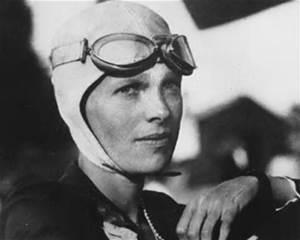
Amelia Earhart
On July 24th, 1897 a girl was born in a small town in Kansas, who would later become an American legend and aviation pioneer. Her name was Amelia Mary Earhart and during her short 39 years of life (that we are aware of), she was to set numerous aviation records, and was one of the first female pilots to achieve celebrity status all around the world. The charismatic, confident and independent Earhart became not only a national icon in the States, but was (and still is) regarded as a feminist icon, daring to tread in the exclusive “boys only” arena of aviation at the time, and spurring a whole new generation of women to believe in themselves and squash stereotypical perceptions of women.
In May 1923 she was the 16th woman to receive a pilots license by the then aviation authority, after setting a world record for female pilots 7 months earlier. She was selected to be the first female passenger on a trans-atlantic flight five years later, writing a book on her experience which would see her being called the “Queen of the Air.”
Earhart’s fame grew when she became the first woman to fly solo non-stop across the Atlantic in 1932, and during the early 30’s began contemplating a circumnavigation of the world flight - in March 1937 she attempted to start said record flight but due to the plane needing repairs the flight was postponed.
On June 1st, Earhart and her co-pilot/navigator Fred Noonan flew out from Miami and over the next month made several stops in South America, Africa, India and Asia before arriving in New Guinea on the 29th, having completed 22,000 miles (35,000 kms) of the journey.
On the 2nd of July they departed for a small piece of land named Howland Island, situated a little north of the Equator in the Pacific. However Earhart, Noonan and their aircraft were to vanish without a trace soon after. The US Coast Guard vessel assigned at Howland Island, to guide them via radio transmissions, received a final message indicating that the pilot could not locate the island, and that they were low on fuel, before all contact was lost.
A number of search efforts, beginning an hour after her last transmission, turned up nothing, even though search efforts lasted 3 weeks. Earhart was declared legally dead in early 1939, and the US Navy concluded that the Lockheed Electra plane ran out of gas and sank into the ocean near Howland Island – however, no wreckage was (or has ever been) found. The fact that a distress or mayday call was never made has fueled rumors over the years of some kind of conspiracy taking place, that the public have not been informed of the full “real” story.
So what did happen to Earhart and Noonan?
Over the years many have speculated about what their fate was and a number of theories have emerged. Many believe that the official crash and sink theory is wrong and that perhaps due to an error made by Noonan in his navigational calculations, they may have crash-landed on the wrong island or a nearby atoll, where they perhaps perished soon after due to injuries. Perhaps the Navy missed them in their search efforts?
A disturbing notion emerged that Earhart was a secret US spy who was working to gather evidence, during this flight of Japanese activity in the Pacific, and was to report back to the US Government when she returned. A WWII-era film named Flight for Freedom reinforced this myth, with the film ending with the Japanese becoming aware of the characters mission, forcing the heroine to ditch her plane off-course where nobody can find her. Did this scenario really happen?
Another scenario put forth is that the Japanese may have shot them down and captured both pilots, whether or not Earhart, or both her and Noonan were spies, and held as prisoners for years afterwards, perhaps even being executed. Inhabitants of an island named Saipan,which is roughly 1500 miles northwest of Howland Island, have claimed for years that in 1937 the local prison held “a white American woman who was captured on a plane and is a spy.” One man claims to have seen two graves he was told held the bodies of two American spies shot down over the Pacific. It has also been claimed that at some point US Marines supposedly found Earharts briefcase in a safe on Saipan, and photographs have emerged supposedly showing not only Earhart during her captivity, but wreckage of the plane which was claimed to have been destroyed by the Japanese army.
In 1970 a book was released called ‘Amelia Earhart Lives’ and made the claim that Earhart had in fact finished the flight, moved to New Jersey, changed her name and re-married. She was named as one Irene Craigmile Bolam, but research showed that the woman could not be the famous aviatrix and she subsequently filed a lawsuit against the author and publisher!
In 1990, US television show ‘Unsolved Mysteries’ interviewed a woman who claimed to have witnessed the two being executed. The photos and this persons claims have either been proven false or remain mysterious. Many other locals of the island have come forth over the years telling their re-collections of seeing or hearing of Earhart and Noonans’ presence.
Of course, it was also speculated that Earhart and Noonan were abducted by a UFO, or were found by the Nazis and held prisoners, maybe perhaps both were brainwashed into becoming double-agents, allied to watch American activity and after fulfilling their work, made new lives for themselves in another country?
Or perhaps Noonan killed Earhart, then himself, to fulfill some mysogynistic ideal to stop females advancing in a “man-orientated” world?
This mystery is sure to be one that will tantalize and stir the curiosity of generations to come. But what do you think?
16 notes
·
View notes
Link
By Yuka Nakao, KYODO NEWS
After several high-profile incidents in recent years highlighted Japan's problems with sexism, a Japanese women's studies pioneer has been presented a special recognition from Finland, a leading country in promoting gender equality.
Chizuko Ueno, a sociologist and a prominent feminist figure in Japan, was one of the first 16 recipients from around the world to receive the Han Honours. She was acknowledged for her "tirelessly and fearlessly" work toward gender equality, according to the Finland Promotion Board.
Through her research, books and activities, Ueno has continuously provoked debates in issues including gender discrimination and sexual violence.
In April, Ueno gave an impassioned and unfiltered speech at the University of Tokyo matriculation ceremony, in which she said the nation's top university is not immune from gender problems and, like any major institution, reflects society's tendency to discriminate against women.
The 70-year-old scholar, who is also a chief director of NPO Women's Action Network, pointed out that less than 20 percent of students entering the University of Tokyo are female. This is despite there being plentiful evidence that female applicants have higher standard scores than their male competitors.
Ueno said one reason for the discrepancy is the gender discrimination that is inherent in the education investment decisions made by Japanese parents. Traditionally, sons are expected to attend university while daughters will often be enrolled in junior colleges.
Even Todai female students feel compelled to conform to Japanese social norms. Ueno gave the example of such students hiding the fact that they were able to enter the prestigious institution in order not to show up male students from other universities, but when the roles are reversed, male students are happy to boast.
She also referred to a criminal case in which five male students sexually abused a female student that attended a private university. One of the accused said during his court hearing that he had looked down on women because they are "stupid."
Ueno reminded newly enrolled students who prevailed against their peers in the fierce entrance exams that they can thank their good circumstances as much as their hard work for them getting to where they are. She said they were lucky to have people around them who encouraged them, supported them, lent a helping hand, and recognized their accomplishments.
"There are people whose drive is dampened even before they try because of negative comments or thoughts like 'You won't succeed no matter what' or 'After all, nobody believes in me,'" she said. "I hope you won't focus your efforts only to win the game for yourself."
"I hope you will use your gifted talents and favorable environment to help those who are less fortunate, and do not denigrate them. And I hope you live your life by accepting who you are even with your weaknesses and by helping and supporting each other," she continued.
The scholar told Kyodo News that, at first, she thought of declining the offer to give the speech.
After considering the social situation in Japan and learning that there were people in the university who worked hard to nominate her, she decided to go ahead.
Ueno said no one tried to intervene in or censor her speech, in which, when explaining women's studies, she covered topics like what women used before tampons and sanitary napkins were ubiquitous, as well as the plight of sexual minorities in Japan.
"I appreciate the trust the university administration placed in me," she said.
The scholar said discrimination against women in Japan is the consequence of political mistakes in the past decades, and thus "a human disaster."
As globalization changed the world, all societies looked to bring women into the labor market, requiring the domestic burden they traditionally carried to be transferred.
While Northern Europe and North America relied on care service in the public sector or cheap labor in the market, countries such as Italy, Spain, Greece, South Korea and Japan looked to a strong male breadwinner model.
The model, in which men earn a living and women tended to domestic and care duties, "privatized" unpaid work in which grandmothers were called upon to care for younger family members, Ueno said.
"But now, none of these options work in Japan," she said, adding that "what has happened is that gender has become something functionally equivalent to race or class in other societies."
The aftermath of a political decision manifested in the fertility rate, Ueno said.
Countries with a male breadwinner model have the lowest fertility rate, with Japan at 1.42 as of 2018 -- well below the 2.07 necessary to sustain the population. The rate figure represents the average number of children a woman will bear in her lifetime.
Although Japan's equal employment opportunity law came into force in 1986, women's double burden of work and family care has not changed. Combined with the easing of a series of labor regulations, the number of irregular workers increased dramatically.
According to the Ministry of Internal Affairs and Communications, 56.8 percent of female workers were in irregular employment as of January 2019, more than twice the percentage as male workers.
But with neo-liberalism pushing "self-determinism and self- responsibility" as a principle, the most socially vulnerable were made to believe that they are at fault for efforts that fail to pay off, while the people with the most advantages believe they owe their success solely to their own abilities, Ueno explained.
"This is what I've been saying is wrong," she said.
Although it is hard to change this trajectory immediately, Ueno says there are changes afoot.
"It's not true that the #MeToo movement did not spread in Japan," Ueno said, pointing to women who took to the streets to denounce Finance Minister Taro Aso after his comments that seemed to make light of an alleged case of sexual harassment by then-Vice Finance Minister Junichi Fukuda.
A man alleged to be Fukuda can be heard asking in an audio clip released by the Shukan Shincho magazine, "Can I give you a hug?" and "Can I touch your breasts?" Fukuda stepped down after the accusations but has continued to deny them.
Aso, a 78-year-old former prime minister, came under fire after saying that there is "no such thing as a sexual harassment charge."
"It's not the same as charges of murder or sexual assault," he told reporters. But in Japan, perpetrators of sexual harassment can be charged with crimes, including sexual assault, rape, or libel.
The protesters included women lining the sidewalk in front of the Finance Ministry building in Tokyo holding signs reading "We won't condone sexual harassment" and "#WithYou" in a show of solidarity with victims of sexual abuse.
Similar protests, organized via social media by women's rights activists, were held in Kyoto and Sapporo.
Another significant shift is coming from older Japanese women apologizing to younger women for failing to raise their voices against sexual abuse in the past.
In an online edition of magazine Hon no Mado, Kyoko Nakajima, a writer in her 50s, lamented that she had not been more vocal when journalist Shiori Ito, born in 1989, shocked the country by alleging a high-profile journalist had raped her, only to suffer an intense public backlash.
"If our generation had raised our voices, society might have changed, even a little," Nakajima reportedly told Ito. "I am really sorry for (leaving) the situation where you had to persevere on your own."
"There are no young women now who think men are better than them," Ueno said. "The problem lies in society, whether it is ready for them or not."
After the matriculation ceremony, the University of Tokyo newspaper conducted an online questionnaire and received answers from 4,921 people, including 603 students.
According to the reports, 61.7 percent of the University of Tokyo students were in favor of the speech, while 87.5 percent of people outside the university valued it. Among the students, 82.2 percent of women appreciated the speech, while 53.1 percent of men responded positively.
"As a graduate of a public high school in a rural region, I feel that one's environment hugely impacts their further education," a male fourth-year law student wrote when explaining why he appreciated Ueno's speech.
"I think those of us who successfully entered the University of Tokyo for some reason, have to bear a responsibility to make society better in any way."
Many respondents reserved judgment, and those who disapproved of the speech argued that Ueno's interpretation was arbitrary or unsuitable for a celebratory occasion, the report said.
But one third-year female arts and sciences student said the speech had a massive impact.
"I think the speech described well the situation of female students in the university as well as women and minorities in society," she wrote.
https://english.kyodonews.net/news/2019/06/5fbad0a24182-feature-feminist-scholar-calls-japans-gender-problem-human-disaster.html
#Kyodo News#Yuka Nakao#Nakao Yuka#Chizuko Ueno#上野 千鶴子#Feminist#Feminism#Japan#上野千鶴子#Gender Inequality#Sexism#Japanese#Japanese Culture#University of Tokyo
36 notes
·
View notes
Text
Tracy Chapman
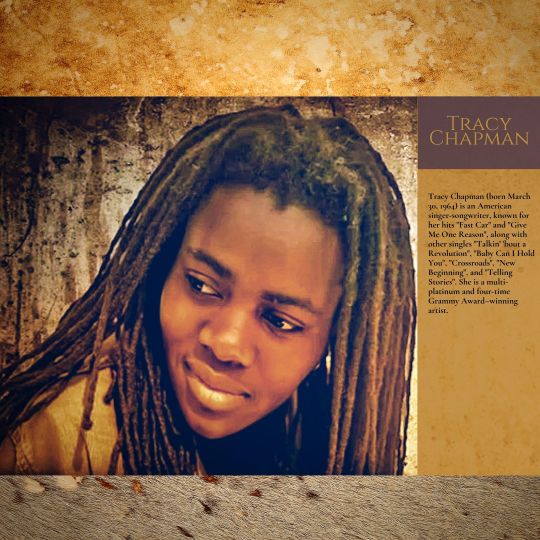
Tracy Chapman (born March 30, 1964) is an American singer-songwriter, known for her hits "Fast Car" and "Give Me One Reason", along with other singles "Talkin' 'bout a Revolution", "Baby Can I Hold You", "Crossroads", "New Beginning", and "Telling Stories". She is a multi-platinum and four-time Grammy Award–winning artist.
Chapman was signed to Elektra Records by Bob Krasnow in 1987. The following year she released her critically acclaimed debut album Tracy Chapman, which became a multi-platinum worldwide hit. The album earned Chapman six Grammy Award nominations, including Album of the Year, three of which she won, including Best Female Pop Vocal Performance for her single "Fast Car", and Best New Artist. Chapman released her second album Crossroads the following year, which garnered her an additional Grammy nomination. Since then, Chapman has experienced further success with six more studio albums, which include her multi-platinum fourth album New Beginning, for which she won a fourth Grammy Award, for Best Rock Song, for its lead single "Give Me One Reason". Chapman's most recent album is Our Bright Future, released in 2008.
Early life
Chapman was born in Cleveland, Ohio. Her parents divorced when she was four years of age. She was raised by her mother, who bought her music-loving three-year-old daughter a ukulele despite having little money. Chapman began playing the guitar and writing songs at age eight. She says that she may have been first inspired to play the guitar by the television show Hee Haw. Chapman's family received welfare. In her native Cleveland, school desegregation efforts led to racial unrest and even riots; Chapman has stated that she experienced frequent bullying and racially motivated assaults as a child.
Raised as a Baptist, Chapman attended an Episcopal high school and was accepted into the program A Better Chance, which sponsors students at college preparatory high schools away from their home community. She graduated from Wooster School in Connecticut, then attended Tufts University, graduating with a B.A. degree in Anthropology and African studies.
Career
Chapman made her major-stage debut as an opening act for women's music pioneer Linda Tillery at Boston's Strand Theater on May 3, 1985. Another Tufts student, Brian Koppelman, heard Chapman playing and brought her to the attention of his father, Charles Koppelman. Koppelman, who ran SBK Publishing, signed Chapman in 1986. After Chapman graduated from Tufts in 1987, he helped her to sign a contract with Elektra Records.
At Elektra, she released Tracy Chapman (1988). The album was critically acclaimed, and she began touring and building a fanbase. "Fast Car" began its rise on the U.S. charts soon after she performed it at the televised Nelson Mandela 70th Birthday Tribute concert in June 1988; it became a number 6 pop hit on the Billboard Hot 100 for the week ending August 27, 1988. Rolling Stone ranked the song number 167 on their 2010 list of "The 500 Greatest Songs of All Time". It is the highest-ranking song on the Rolling Stone list that was both written and performed by a female performer. "Talkin' 'bout a Revolution", the follow-up to Fast Car, charted at number 75 and was followed by "Baby Can I Hold You", which peaked at number 48. The album sold well, going multi-platinum and winning three Grammy Awards, including an honor for Chapman as Best New Artist. Later in 1988, Chapman was a featured performer on the worldwide Amnesty International Human Rights Now! Tour.
Chapman's follow-up album, Crossroads (1989), was less commercially successful than her debut had been, but it still achieved platinum status. By 1992's Matters of the Heart, Chapman was playing to a small but devoted audience. Her fourth album, New Beginning (1995), proved successful, selling over three million copies in the U.S. The album included the hit single "Give Me One Reason", which won the 1997 Grammy for Best Rock Song and became Chapman's most successful single to date, peaking at Number 3 on the Billboard Hot 100. Following a four-year hiatus, her fifth album, Telling Stories, was released in 2000. Its hit single, "Telling Stories", received heavy airplay on European radio stations and on Adult Alternative and Hot AC stations in the United States. Chapman toured Europe and the United States in 2003 in support of her sixth album, Let It Rain (2002).
To support her seventh studio album, Where You Live (2005), Chapman toured major U.S. cities in October and toured Europe over the remainder of the year. The "Where You Live" tour was extended into 2006; the 28-date European tour featured summer concerts in Germany, Italy, France, Sweden, Finland, Norway, the UK, Russia and more. On June 5, 2006, she performed at the 5th Gala of Jazz in Lincoln Center, New York, and in a session at the 2007 TED (Technology Entertainment Design) conference in Monterey, California.
Chapman was commissioned by the American Conservatory Theater to compose music for its production of Athol Fugard's Blood Knot, a play on apartheid in South Africa, staged in early 2008.
Atlantic Records released Chapman's eighth studio album, Our Bright Future (2008). Chapman made a 26-date solo tour of Europe. She returned to tour Europe and selected North American cities during the summer of 2009. She was backed by Joe Gore on guitars, Patrick Warren on keyboards, and Dawn Richardson on percussion.
Chapman was appointed a member of the 2014 Sundance Film Festival U.S. Documentary jury.
Chapman performed Ben E. King's "Stand By Me" on one of the final episodes of the Late Show with David Letterman in April 2015. The performance became a viral hit and was the focus of various news articles including some by Billboard and The Huffington Post.
On November 20, 2015, Chapman released Greatest Hits, consisting of 18 tracks including the live version of "Stand by Me", the album is Chapman's first global compilation release.
In October 2018, Chapman sued the rapper Nicki Minaj over copyright infringement, alleging that Minaj had sampled her song "Baby Can I Hold You" without permission. Chapman's lawsuit requested an injunction to prevent Minaj releasing the song "Sorry" and stated that she had "repeatedly denied" permission for "Baby Can I Hold You" to be sampled. Chapman had previously expressed her reservations about being sampled.
Social activism
Chapman is a politically and socially active musician. In a 2009 interview with American radio network NPR, she said, "I'm approached by lots of organizations and lots of people who want me to support their various charitable efforts in some way. And I look at those requests and I basically try to do what I can. And I have certain interests of my own, generally an interest in human rights." She has performed at numerous socially aware events, and continues to do so. In 1988, she performed in London as part of a worldwide concert tour to commemorate the 40th anniversary of the Universal Declaration of Human Rights with Amnesty International. The same year Chapman also performed in the Nelson Mandela 70th Birthday Tribute, an event which raised money for South Africa's Anti-Apartheid Movement and seven children's charities. In 2004, Chapman performed (and rode) in the AIDS/LifeCycle event.
Chapman has also been involved with Cleveland's elementary schools. A music video produced by Chapman that highlights significant achievements in African-American history has become an important teaching tool in Cleveland Public Schools. Chapman also agreed to sponsor a "Crossroads in Black History" essay contest for high school students in Cleveland and other cities.
Chapman received an honorary doctorate from Saint Xavier University in Chicago in 1997. In 2004, Chapman was given an honorary doctorate in Fine Arts by her alma mater, Tufts University, recognizing her commitment to social activism.
I'm fortunate that I've been able to do my work and be involved in certain organizations, certain endeavors, and offered some assistance in some way. Whether that is about raising money or helping to raise awareness, just being another body to show some force and conviction for a particular idea. Finding out where the need is – and if someone thinks you're going to be helpful, then helping.
Chapman often performs at and attends charity events such as Make Poverty History, amfAR, and AIDS/LifeCycle, to support social causes. She identifies as a feminist.
Personal life
Although Chapman has never publicly disclosed her sexual orientation, writer Alice Walker has stated that she and Chapman were in a romantic relationship during the mid-1990s. Chapman maintains a strong separation between her personal and professional life. "I have a public life that's my work life and I have my personal life," she said. "In some ways, the decision to keep the two things separate relates to the work I do."
Discography
Studio albums
Tracy Chapman (1988)
Crossroads (1989)
Matters of the Heart (1992)
New Beginning (1995)
Telling Stories (2000)
Let It Rain (2002)
Where You Live (2005)
Our Bright Future (2008)
6 notes
·
View notes
Text
Why do women get paid less? Why can’t they vote? Why are women only meant to be housewives and daughters who weren’t allowed to leave the house? You are probably thinking that I am not making sense… “we aren’t in the 50’s anymore”. Yes, I know, but that doesn’t mean that women aren’t facing issues like this today. There are still many women around the world fighting for their basic rights. We are forgetting that women are humans. How can we help? We need to spread awareness, educate others around us. These are all questions that I have about this topic. Questions itself aren’t enough. We ask questions to gain knowledge and understand the world. The topic we will talk about is the Feminist movement. What exactly is the Feminist Movement? According to the internet it is, “social movements and political campaigns for radical and liberal reforms on women's issues created by the inequality between men and women.” There are many businesses and organizations putting in the effort to raise awareness.
When did this movement start? It started in 1848- 1917. “The fight for women’s suffrage in the United States began with the women’s rights movement in the mid-nineteenth century. This reform effort encompassed a broad spectrum of goals before its leaders decided to focus first on securing the vote for women. Women’s suffrage leaders, however, disagreed over strategy and tactics: whether to seek the vote at the federal or state level, whether to offer petitions or pursue litigation, and whether to persuade lawmakers individually or to take to the streets. Both the women’s rights and suffrage movements provided political experience for many of the early women pioneers in Congress, but their internal divisions foreshadowed the persistent disagreements among women in Congress that emerged after the passage of the Nineteenth Amendment.”
There are many companies and brands that support the feminist movement. The companies are, Abbot, CVS Health, Johnson & Johnson, Estée Lauder Companies. The biggest feminist organization is National Organization for Women (NOW). They have 500,000 members. The American Association of University Women advanced equity for women and girls by advocacy. “American Association of University Women advances equity for women and girls through advocacy, education, philanthropy and research. AAUW (formerly known as the American Association of University Women) is a nationwide network of more than 100,000 members and donors, 1,000 branches and 500 college and university institution partners.”
How does the National Organization for women view this and what actions are they taking? They want to bring equality for all women. “The largest organization of feminist activists in the United States, NOW has 500,000 contributing members and 550 chapters in all 50 states and the District of Columbia. Since its founding in 1966, NOW’s goal has been to take action to bring about equality for all women.” The National Organization for women organizes marches, rallies, and many more. “NOW activists use both traditional and nontraditional means to push for social change. NOW activists do extensive electoral and lobbying work and bring lawsuits. We also organize mass marches, rallies, pickets, non-violent civil disobedience and immediate, responsive “zap” actions.” Their actions helped increase educational opportunities, employment and business opportunities for women. Additionally, they are supporting abortion rights, fighting racism and discrimination. “championing abortion rights, reproductive justice along with other women’s health issues; opposing racism; fighting discrimination based on sexual orientation or gender identity in all areas,”
References:
https://www.pacificu.edu/magazine/four-waves-feminism
https://seramount.com/articles/womens-organizations-you-need-to-know/
https://now.org/about/who-we-are/
My website:
https://rtaha73.wixsite.com/feministmovement
https://at.tumblr.com/thfeministmovement/why-do-women-get-paid-less-why-cant-they-vote/3g6whkmvas97

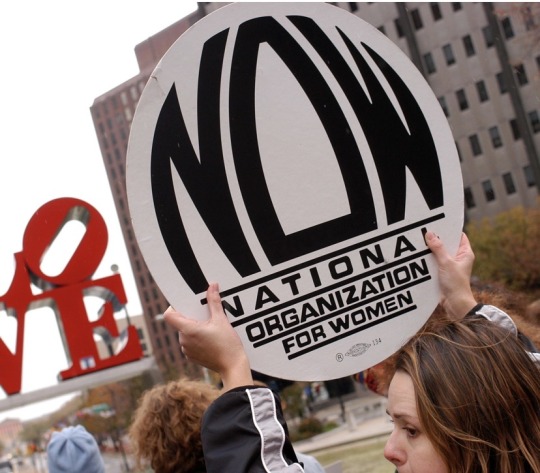
0 notes
Text
Damsel 2018 Hindi Dubbed Full Movie Download Web-DL 720p
Damsel 2018 Movie Hindi Dubbed Free Download Link, Damsel 2018 In Hindi Google Drive, Damsel 2018 Hindi Dual Audio Web-DL 720p 480p
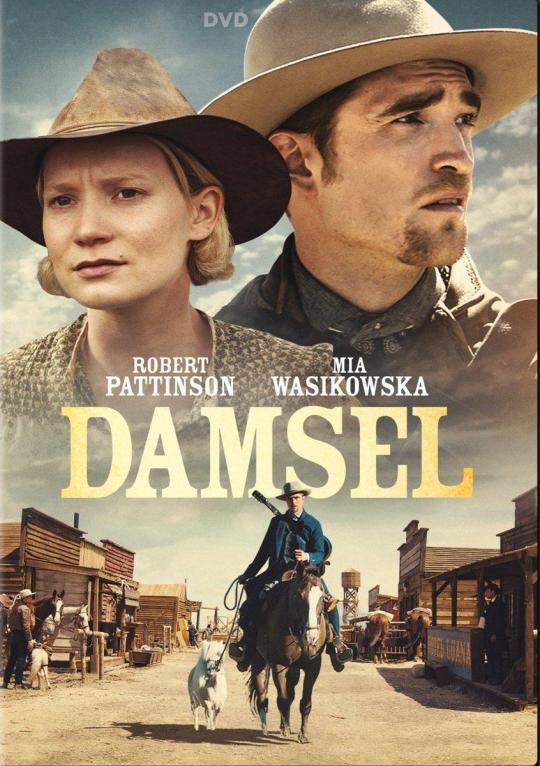
Damsel (2018)
IMBD Score: 5.6/10
Language: Hindi
R | 1h 53min | Comedy, Drama, Western | 22 June 2018 (USA)
Directors: David Zellner, Nathan Zellner
Writers: David Zellner, Nathan Zellner
Stars: Robert Pattinson, Mia Wasikowska, David Zellner
Click Here To DOWNLOAD NOW
The film moved to Oregon in late August 2016, and main filming began in early March 2017 with a production budget of $2.5 million. David and Nathan Zellner assembled a team of actors, directors, cinematographers, sound designers, lighting and sound engineers.
On the review aggregator website Rotten Tomatoes, the film has a 69% approval rating based on 106 reviews. The critical consensus on the website reads: "The beautifully filmed Damsel lends a welcome dose of humour and unexpected twists to the Western genre, although its stately pace could frustrate impatient viewers. Few filmmakers have earned the adjective "oblique" more than the Zellner brothers David and Nathan, whose new western, which premiered at Sundance, Damsels, is a refreshing interpretation of a genre in which tropes remain unmolested and nothing goes as it should.
I probably should clear my head and think about what I saw, but I probably shouldn't because I need to see it.
I will be happy and possibly irritated if it turns out to be a clown show or a case of carnage, but I will still experience it.
The film's sense of humor grows blotchier and less rich as Damsel's meandering second half is forced upon us, and it ultimately fails to maintain the breezy, dysfunctional charm of the first half. Even Butterscotch gives the impression of being a contrast to the other characters inhabiting his version of the Wild West, with the exception of Pattinson. One not dissimilar to a Western curiosity like Slow West.
The film's humor is desperate at first - pointedly - and its satirical taunts are folded back into the film, but it never takes off and, overall, doesn't make for a compelling experience. Robert Pattinson and Mia Wasikowska star in Damsel 2018, an uneven comedy drama that premieres tonight at the Berlin Film Festival. In a stupidly loose role that proves his breadth, Hebebe acknowledges his role as the title character, a man with a penchant for self-indulgence and a sense of entitlement.
At the center of the story is Samuel (Pattinson), who is in love with Penelope (Mia Wasikowska), a beautiful young woman from a remote mountain town who has been kidnapped. In an effort to find out if they can marry, Samuel enlists the help of his best friend's father (John Malkovich) to marry her if his mission is successful. But things do not go according to plan, and Samuel discovers that he may have been wrong about them, and that this may not be the happy - eternal - story he once imagined. To free her, however, he has to figure out what might be wrong with her.
The result is a surprising and prescient change that turns Damsel into a welcome feminist revisionist western. The Zellners, who write, direct and play the film, make it almost like a parody of the Western genre, focusing heavily on Samuel's love for Penelope and his relationship with her. In the end, Henry and Samuel find her and discover that she may not be the girl in need they were expecting.
Darkness and humour are never far apart, but they are equally balanced. Damsel finds his successful filmmakers David and Nathan Zellner in a revisionist western that slowly finds unexpected resonance.
The script, directed by the brothers, refuses to let the audience take genre tropes for granted and constantly turns on its head who the characters are and what they do. While unsuspecting viewers may be confused as to whether this strange film is a parody or homage, the film's Western trappings help with accessibility. One of David and Nathan Zellner's greatest strengths as sibling directors is their ability to make smart films seem like superficial larks.
The Zellners are excellent at turning absurd circumstances into pointed observations of human behavior. In Blazing Saddles, a crazy Old West setting conjures up the bizarre story of a man trying to unearth a woman who wants nothing to do with a desperate man. He is a combative, open-minded pioneer who dodges various attempts to woo her, but he is not up to it.
This may not be a total loss, but it is the biggest disappointment in cinema so far this year and offers little pleasure. But you get a cute miniature horse, so maybe it's not the work that cost to stay away from the second half.
Robert Pattinson and Mia Wasikowska star in the film, but it's actually one of the film's directors, David Zellner, who plays Parson Henry. It was written, directed, produced and co-directed by the same man responsible for the western starring John Travolta, John Cusack and Michael Fassbender.
The Zellner Brothers and David Nathan's Buffalo - drenched, odyssey - stylized amusement is beautiful to look at, plays around with genre tropes, shows Robert Pattinson in a favorable new light and shows his favorable, if new, light. Nearly two hours of Damsel are unfilled, but the writers and directors are able to turn expectations upside down and scare the audience, even if their efforts show far too much and end terribly self-conscious in the weak second half.
Click Here To DOWNLOAD NOW
1 note
·
View note
Photo
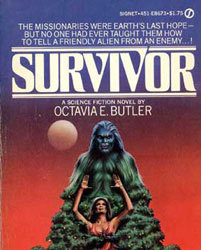
“My Star Trek novel”: Octavia Butler’s Survivor
Survivor (1978) is part of the Pattern series, but has not been reprinted since 1981. Butler repudiated the novel and refused to allow it to be reprinted:
When I was young, a lot of people wrote about going to another world and finding either little green men or little brown men, and they were always less in some way. They were a little sly, or a little like “the natives” in a very bad, old movie. And I thought, “No way. Apart from all these human beings populating the galaxy, this is really offensive garbage.” People ask me why I don’t like Survivor, my third novel. And it’s because it feels a little bit like that. Some humans go up to another world, and immediately begin mating with the aliens and having children with them. I think of it as my Star Trek novel.
All I can say is, she clearly watched a better grade of Star Trek than I ever did. I can understand her problem with the biology, but what she seems to be saying there is that Survivor is a dishonest novel. Well, I kind of like it. I’m sorry you can’t read it.
I was wrong in the comments to the last post when I said it was only tenuously connected to the other Pattern books. It is, as I remembered, almost entirely set on another planet. But it’s essential that the humans in the book—and especially Alanna, the protagonist and titular survivor—came from that disintegrating Earth. They have lived through a lot of betrayal (“a clayark friend” is an untrustworthy friend, from the people who deliberately spread the plague) and crisis. Alanna herself was a “wild human” before being adopted by the colonising missionaries. Between the ages of eight and fifteen, after her parents died as society collapsed, she lived alone and wild. Every society she becomes part of afterwards she blends into and adopts protective coloration. The missionaries who take her in are themselves not your usual humans in space. They’ve taken a one way journey and are particularly obsessed with keeping themselves human, because they have seen the clayarks. And their spaceship is powered by a telekinetic who dies on arrival. Nobody’s boldly going—more like fleeing. They’re space refugees much more than space pioneers.
The basic story of Survivor is in fact fairly standard for written SF. Some humans go to colonize another planet, it has intelligent aliens on it, they have trouble with them, the protagonist is captured by the aliens and figures out how to get along with them. I can think of a pile of books this describes: Judith Moffett’s Pennterra, Cherryh’s Forty Thousand in Gehenna, Marion Zimmer Bradley’s Star of Danger—hang on a moment, why are all those written by women? Is there something I’m not seeing? And why have I read all these books so I have their names on the tip of my finger? Why is this a theme and a story I’m always happy to rediscover? Is there actually a subversive feminist thing going on here? (You think?) Certainly Alanna is a powerful central female character of a kind that was still quite unusual in 1978, and even in the early eighties when I read Survivor. And certainly this thing of getting along with aliens, especially in the light of the Tiptree story, is interesting. I think Survivor can definitely be positioned with a lot of feminist SF.
It is in fact an interesting variation on the theme outlined above. Firstly, Alanna, the human protagonist, is very atypical. She’s from Earth, but not an Earth or a culture that feels familiar. (Forget Star Trek‘s Middle America in Space.) Even beyond what’s happened to Earth, she’s very young and she has that feral background. It would be a much more ordinary book with a protagonist designed to be easy to identify with. It’s the characterisation of Alanna that makes this rise above the norm. Also, the alien culture is nifty. They’re all Kohn, but the humans interact with two nations of them, the Garkohn and the Tehkohn. They have fur that changes colour and flashes as part of their communication. The Garkohn, with whom the humans initially make friends, marks membership by deliberately eating an addictive fruit that grows only in their region. I’d also argue with Butler’s characterisation of the aliens (in the interview) as “somehow lesser.” They’re not as technologically advanced as the humans, certainly, but in every other way they have them beaten and surrounded. There’s very little doubt that the human colony on the planet is going to be utterly assimilated. The aliens are far better fitted to survive. And as we know, humans on Earth aren’t doing well, and many of the other colonies being sent out are taking telepathic children along as cuckoos. As a universe, it looks as if aliens are winning hands down.
The survival theme is obvious, the novel’s other theme is belonging.
When people talk about “write what you know” instead of writing SF, I always say that the one thing we’re all qualified to write is the story of being thirteen years old and surrounded by aliens. There’s a way in which Survivor is that—again especially in the light of “The Women Men Don’t See.” Alanna’s eighteen when she goes to the alien planet, twenty at the end of the book. To begin with she doesn’t fit in anywhere. The humans are just as alien to her as the aliens are, more alien in some ways, she more naturally fits with the aliens. This is the story of how she finds her place and defines herself as belonging. Her place is found among the aliens, and by the (biologically improbable) child she bears to the blue-furred alien leader who first raped her but who she later comes to love. I find that trope a lot more problematic than the human/alien interfertility.
The other thing that’s weird in this book is color. Not among the humans. The humans are a mixture of black and white, and Alanna describes herself as “half-black and half-Asian.” (I notice there was no question of disguising this on the cover. Both US and UK covers went with the aliens.) The remaining racial prejudice that causes one colonist to suggest that Alanna would be better adopted by black parents than white ones is raised only to make the point that everyone is human. But then we get to the aliens. The furry (but humanoid, and inter-fertile) Kohn are literally “people of color”—they are heavily furred and their fur changes colour as part of communication. Their natural fur shade determines their caste, the bluer the better and the yellower the worse. I’m sure Butler can’t have done this unconsciously, with color of all things, but I find it hard to understand what she intended with the text’s neutral-to-positive depiction of color as caste and destiny for the aliens. The Garkohn, who have killed off their blue-furred upper classes, are the addicted bad guys, and the Tehkohn, who retain the caste system complete, are the ones Alanna chooses to belong to. Her leader husband has luminously blue fur. If this is possibly what later made Butler uncomfortable and want to suppress the book, I can see it. I mean I can also see all sorts of thought-provoking ways in which the alien color-change fur could be an interesting thing to do with race… but that really doesn’t seem to be what she is doing. The goodness of blue-ness goes apparently unquestioned. Weird, as I said.
The writing is just where you’d expect it to be, better than Mind of My Mind, not quite as good as Wild Seed. The characterisation, of humans and aliens is excellent all the way through. The story is told in past and present threads, the same as Clay’s Ark. But you can’t read it (unless you want to pay at least $60 for a second-hand copy) so it doesn’t matter whether I recommend it or not.
#octavia estelle butler#octavia e. butler#octavia e butler#octavia butler#survivor#rip#black sci-fi#black sci fi#sci fi#sci-fi#speculative fiction#black authors#black author#lit#black lit#black literature#literature#books#tor.com#kohn#people of color#garkohn#tehkohn#alanna#clayark#clayarks
3 notes
·
View notes
Link
I know I’m inviting takes about the decadence of feminism in the Obama era — you people think movies and TV are real life! You wasted your time on rape jokes instead of Medicare for All! All you care about are symbolic victories! — and certainly, in the later, more clickbaity iteration of that particular politic, there was a lot of shallow, performative stuff. Mainstream media websites learned how to do the kind of writing my friends and I were doing for free; they rarely hired the people who had pioneered that type of writing or made it popular, and instead hired younger writers without recognizable bylines or a deep grounding in the issues. Those writers were more precarious, more exploitable, and they were able to turn out quick takes on whether something was “problematic” without any deep passion or connection to a wider political movement. It showed.
Pop-analysis feminism became its own recognizable form, and people kind of thought it sucked, and maybe, by the end, when we were writing listicles on how feminist the Disney Princesses were or weren’t, it kind of did suck, the same way it kind of sucks that I can buy an endless variety of “STRONG WOMAN” dresses for my almost-two-year-old who hasn’t even officially told me what her gender is. It’s probably better to buy her the “STRONG WOMAN” dress than something that says, like, “Flirt” or “Daddy’s Little Tease” or “I’m A Very Sexy Baby,” which was the previous fad. But it’s still an odd, dissociative feeling, watching this political moment my friends and I worked to bring about become a pin, or a baby onesie, or a motto woven into some novelty socks.
Today, picking up some summer clothes for the baby, I found a little T-shirt that showed a “diverse” group of little girls (a white redhead, a white blonde, a brown girl) riding rockets through the sky, leaving a trail that said “OWN YOUR POWER.” I thought it was a nice message, but I also thought $13 was a high price to pay for it. I thought about how it must be vastly more marketable to create a T-shirt about women’s power than to actually be a feminist who analyzes and advocates for women’s power in the public sphere; how my income is dwarfed by the incomes of the people who sell these shirts, and yet I’m expected to give them money to reflect my own points back to me; how so many women swam out, in the early and mid ‘00s, way ahead of the wave, writing full-length essays every day for no money, trying to bring the culture to a place where girls didn’t begin all their sentences with “I’m not a feminist, but…”
No-one invested in those websites. You couldn’t even get ad money or sponcon partnerships for them. Some of them pulled more traffic than sections of the Huffington Post, but according to the experts, they just weren’t “marketable.” Then, somehow, with no support, and no-one taking them seriously, those women changed the culture to the point that Beyonce was sampling feminist lectures in her hit singles. And not only did most of us never become famous for it, or even earn a living wage, we didn’t even get the stupid T-shirt. We still have to go to the mall and pay up.
So I thought about that. And I thought about how effective it would be for my daughter to wear an “OWN YOUR POWER” t-shirt in Georgia or Alabama. How much power you can really own, or purchase at Old Navy, when your own government is taking your sovereignty over your body away.
I don’t know what there is to say about Georgia and Alabama (and Ohio, and Michigan, and Missouri, and) that I didn’t say last week, or that a thousand people haven’t said for me. People have been saying the same thing, myself included, for years now. Last summer, when the news broke that Justice Kennedy would retire, I remember sitting numbly in a coffee shop, staring at my computer screen, not moving. The way you do when something horrible happens; when you’re afraid to move, because then linear time will commence, and you’ll have to live in the horrifying future where this has already happened to you. Eventually, the spell broke. I saw a headline where Bernie Sanders said something stupid — “in many ways, we did win the election,” I believe it was — and I snapped back into the moment, and I swear to God, my ears started ringing. The whole world was silence and whine, like some cheesy movie portraying the aftereffects of a bomb blast. I was so angry it briefly shifted the pressure inside my skull.
read more
13 notes
·
View notes